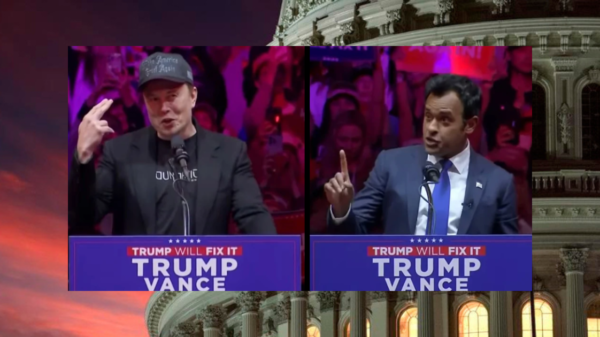Former New Jersey Gov. Chris Christie may be best known – at least on the presidential debate stage – for tearing down rivals rather than building up fellow Republicans.
In a 2016 GOP primary debate, he famously roughed up Marco Rubio in a debate at Saint Anselm College in New Hampshire. Christie dismissed the first-term Floridian as a Senate no-show who had missed too many votes and simply repeated manufactured talking points. The move was widely credited with knocking Rubio out of a top contender spot.
But Christie also has spent the last several years helping the Republican Party raise money and lead tedious state-by-state legal battles to redraw congressional lines. His efforts in 2022 paid off: New York Democrats over-reached in skewing new district lines in their favor, generating jokes and criticism from the right to the far left.
Christie, who co-chaired the national redistricting efforts along with former Secretary of State Mike Pompeo, helped fight those Democratic congressional maps and won. Even though the predicted “red wave” never materialized, Republicans flipped four seats in New York, including that of Sean Patrick Maloney, the chairman of the Democratic Congressional Committee, helping to hand House Republicans a slim majority and Rep. Kevin McCarthy the speakership.
“He certainly built up goodwill among politicians, and officials around the country with his work on redistricting,” John Faso, a former New York congressman who served as a spokesman for the GOP-backed redistricting challenges, told RealClearPolitics. “How that translates into the presidential race, I wouldn’t speculate on.”
“He gets his point of view across. There’s no mistaking what he’s trying to say, and I think that’s refreshing,” Faso added.
At 60, Christie is a well-known GOP commodity with a long and colorful political career. In addition to two terms as New Jersey governor, Christie was a popular chairman of the Republican Governors Association, helping his fellow GOP governors get elected and building ties to big GOP donors in the coveted post for any aspiring presidential candidate.
His work on behalf of his party is widely appreciated among some corners of the GOP. Still, he could squander that residual goodwill if his long-shot candidacy does nothing more than rough up the leading Republican candidates in the race – Donald Trump and Florida Gov. Ron DeSantis – rather than change the outcome. Pompeo, who co-chaired the GOP redistricting effort, is notably bypassing a 2024 presidential run.
Indeed, New Hampshire Gov. Chris Sununu also bowed out of a potential presidential run, explaining on Monday he decided not to join the crowded field because too many candidates would splinter votes and only help Trump win the nomination.
In the run-up to Christie’s Tuesday announcement at the same venue where that 2016 debate took place, Christie’s supporters have previewed his long-shot 2024 candidacy as a potential Donald Trump-slayer. Christie was formerly close to Trump but broke from him after the Jan. 6 Capitol attack and Trump’s insistence that the 2020 election was stolen from him.
One Christie supporter called the impending Trump-Christie clash the “battle of the bullies,” two brash Northeasterners known for hurling insults and taking potshots. Liberal commentators and anti-Trump Republicans have heralded Christie’s entrance into the race as a potential Trump spoiler.
Republican strategist Mike Murphy recently dubbed Christie “the popcorn candidate.”
“He’s lighting a stick of dynamite and running directly at Trump – it’s going to be entertaining,” Murphy, a former adviser to Sen. Mitt Romney and the late John McCain, said of Christie.
But the two are far from evenly matched – even when it comes to name-calling and lobbing attacks. Like the other GOP candidates in 2016, Christie was overcome by Trump in 2016, leaving the race in early February after a poor showing in the New Hampshire primary and low poll numbers.
And he left the New Jersey governorship with an approval rating of just 15%. A poll conducted by Echelon Insights between May 22 and 25 showed Christie entering an already crowded field with 1 percent or less of support, tied with talk show host Larry Elder (who got trounced in the 2021 California re-election recall of Gov. Gavin Newsom), and trailing far behind Trump (49 percent), as well as DeSantis (19 percent), Mike Pence (9 percent), Vivek Ramaswamy (8 percent), Nikki Haley (5 percent) and Sen. Tim Scott (2 percent).
And a direct showdown with Trump may never come to pass because a proposed Republican debate requirement mandates that a candidate must have 40,000 unique donors to qualify for the first debate in August. Christie has had trouble in the past raising small-dollar donations and has only two months to reach that threshold.
And so far, Christie has thrown some haymakers at Ron DeSantis, too, blasting the Florida governor as a fake conservative for his crusade against Disney that began over a fight when DeSantis signed legislation banning classroom teaching about gender identity and sexual orientation for young children in schools.
“I don’t think Ron DeSantis is conservative, based on actions towards Disney,” he told a group of reporters at Semafor, a liberal-leaning news outlet, during a wide-ranging discussion in April. “Where are we headed here now that, if you express disagreement in this country, the government is now going to punish you? To me, that’s what I always thought liberals did, and now all of a sudden, here we are, participating in this with a Republican governor.”
If Christie keeps taking jabs at both Trump and DeSantis, he stands to alienate nearly two-thirds of Republican voters while accomplishing little for himself.
Ross Baker, a political science professor at Rutgers University, argues Christie’s quixotic jump into the GOP primary is motivated by personal revenge after Trump shunted him aside and didn’t select him for vice president. The former New Jersey governor dropped out of the primary, endorsed Trump, and vigorously backed him, helping him with debate prep against Hillary Clinton. Christie even served as Trump’s transition team chair until Trump reportedly grew annoyed with his efforts to attend meetings with Trump and replaced him with Mike Pence in mid-November.
“That was an enormously humiliating experience for him – that he was in charge of the landing team for Trump in 2017, then unceremoniously was shoved to the side,” Baker told RCP. “Christie is very, very, very well-known for settling scores. He’s got scores to settle with Trump.”
Baker says Christie is trying to take Trump down a few pegs and “throw some blood” – a way to help mold the future of the GOP once Trump exits the stage or is forced from it.
“But that’s a tall order because, obviously, a substantial portion of the Republican primary is as close to Trump as a stamp is to a love letter,” he added.
Gregg Keller, a Missouri-based Republican strategist, has argued that having other candidates in the GOP primary willing to take on Trump is essential for the future of the “ideologically and culturally diverse” party.
But Keller doesn’t count Christie as one of them.
Despite Christie’s redistricting work, Keller cast the former governor as adrift for the last few years without a position of enough prominence to build a constituency and a record to run on.
“In many ways, he’s a man without a country,” Keller said in an interview. “He is not strong on the social and cultural issues that animate Republican primary voters.”
For the average Republican voter, the most memorable Christie takeaways are the images of him working alongside President Obama in the aftermath of Hurricane Sandy and the feeling that Trump doesn’t like him or trust him that much, Keller said.
In effect, the animus for his presidential run could also prove his downfall.
“He’s still good at getting headlines from time to time, and CNN and others in the mainstream media will lap that up as much as they can when he attacks DeSantis and Trump, but I don’t think he’s going to factor too much in the race,” Keller concluded.
Susan Crabtree is RealClearPolitics’ White House/national political correspondent. This article was originally published by RealClearPolitics and made available via RealClearWire.
















